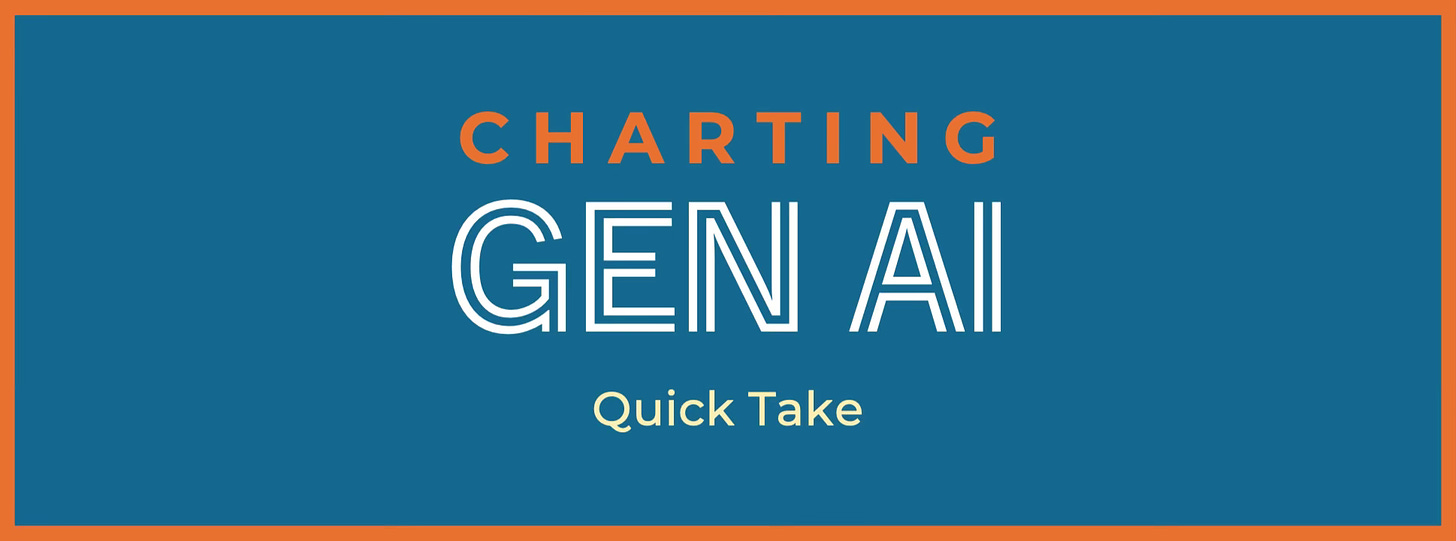Trump fires Copyright Office chief after her AI report apparently sides with creators
'Dismissal seeks to ensure AI develops without meaningful copyright constraints'
WHAT’S HAPPENED?
PRESIDENT DONALD TRUMP yesterday fired US Copyright Office chief Shira Perlmutter — hours after the release of a long-awaited report on the training of generative AI models on creators’ works which tentatively backed rightsholders.
As POLITICO reported, Perlmutter’s sacking followed Thursday’s abrupt dismissal of Library of Congress (LoC) boss Carla Hayden who appointed Perlmutter to the top role at the Copyright Office — which registers copyright and advises lawmakers and the public on IP matters as part of the LoC — during the first Trump administration in October 2020.
Perlmutter’s highly detailed 108-page report with 588 footnotes was released on Friday as a “pre-publication” version that the Office said was unlikely to see any “substantive changes in the analysis or conclusions”. Addressing the hi-techs’ mass scraping of content in the belief that more training data combined with increased computing power improves AI model performance, the report said:
“It is an open question … how much data an AI developer needs, and the marginal effect of more data on a model’s capabilities. Not everyone agrees that further increases in data and test performance will necessarily lead to continued real world improvements in utility.”
On unauthorised copying it stated:
“The steps required to produce a training dataset containing copyrighted works clearly implicate the right of reproduction. Developers make multiple copies of works by downloading them; transferring them across storage mediums; converting them to different formats; and creating modified versions or including them in filtered subsets. In many cases, the first step is downloading data from publicly available locations, but whatever the source, copies are made — often repeatedly.”
On the highly contentious issue of fair use, the copyright exception in the US Copyright Act that AI developers claim applies to generative model training, the report opined:
“The Office expects that some uses of copyrighted works for generative AI training will qualify as fair use, and some will not. On one end of the spectrum, uses for purposes of non-commercial research or analysis that do not enable portions of the works to be reproduced in the outputs are likely to be fair. On the other end, the copying of expressive works from pirate sources in order to generate unrestricted content that competes in the marketplace, when licensing is reasonably available, is unlikely to qualify as fair use. Many uses, however, will fall somewhere in between.”
On opt-outs offered to creators under the EU’s text and data mining exception, and which form a key plank of the UK government’s controversial approach to AI and copyright, the report said:
“Copyright owners rejected the idea of any opt-out approach. They asserted that it would be antithetical to current law, unduly burdensome, impossible to utilise after training occurs, and difficult to implement. The Office agrees that requiring copyright owners to opt out is inconsistent with the basic principle that consent is required for uses within the scope of their statutory rights.”
The Copyright Office said it would like to see voluntary licensing given time to develop rather than a government intervention forcing AI developers to agree deals with rightsholders. “In those areas where remaining gaps are unlikely to be filled, alternative approaches such as extended collective licensing should be considered to address any market failure,” said the report. It concluded by stating:
“In our view, American leadership in the AI space would best be furthered by supporting [our nation’s] world class [creative and technology] industries that contribute so much to our economic and cultural advancement. Effective licensing options can ensure that innovation continues to advance without undermining intellectual property rights. These groundbreaking technologies should benefit both the innovators who design them and the creators whose content fuels them, as well as the general public.”
Rep. Joe Morelle, the leading Democrat on the House administration committee, claimed Perlmutter’s dismissal was “a brazen, unprecedented power grab with no legal basis” and “no coincidence” after “she refused to rubber-stamp Elon Musk’s efforts to mine troves of copyrighted works to train AI models”.
Commenting on LinkedIn Dr Courtney Radsch, director of the Center for Journalism and Liberty at the Open Markets Institute, said Perlmutter’s dismissal appeared to be directly linked to the report’s questioning on “unlimited harvesting of copyrighted materials, which is not what the broligarchy wants to hear”. “This firing represents a dangerous consolidation of power between Big Tech and the executive branch, aimed at silencing regulatory expertise that could impede their extraction of value from creators. Musk, Zuckerberg, Altman and their allies now face one fewer institutional check on their AI agenda— unrestricted data harvesting without consent, credit or compensation. Do we all recognise this for what it is? A calculated move to ensure AI development continues without meaningful copyright constraints, regardless of the cost to creators or the public interest (the human public).”
Matt Rogerson, public policy chief at the Financial Times, said on LinkedIn: “This is really, really troubling. Wonder who in the administration got the call from which tech company saying this isn’t the result they wanted? Defenestration of a free press starts with demonetisation, so the interests clearly align here.”
WHY SHOULD WE CARE?
✨As Edward Lee, professor at Santa Clara University School of Law and chronicler of AI copyright lawsuits, states we don’t fully know the reasons why Trump fired Perlmutter but “the timing is at least suggestive” and raises “a huge cloud of uncertainty over whether the report will ever become official”. The Trump admin is currently analysing responses to requests into what should go in its AI Action Plan. Big Tech wants him to declare model training on copyrighted works is fair use, saying this will preserve America’s AI supremacy. At the same time the judge overseeing a copyright infringement lawsuit brought by authors against Meta is poised to issue a summary judgment on fair use. Courts decide fair use on a case-by-case basis, not the Copyright Office, but an official report questioning fair use in a methodical, sober and highly detailed way might have influenced Congress. We can fully expect the Trump admin to rubbish it as a flawed work in progress which came to the wrong conclusion. What replaces it will reveal how independent the Copyright Office is, and, ultimately whether the very notion of copyright will exist in the era of AI.











Once again, thank you, Graham. Puts Carla Hayden's sacking in context.